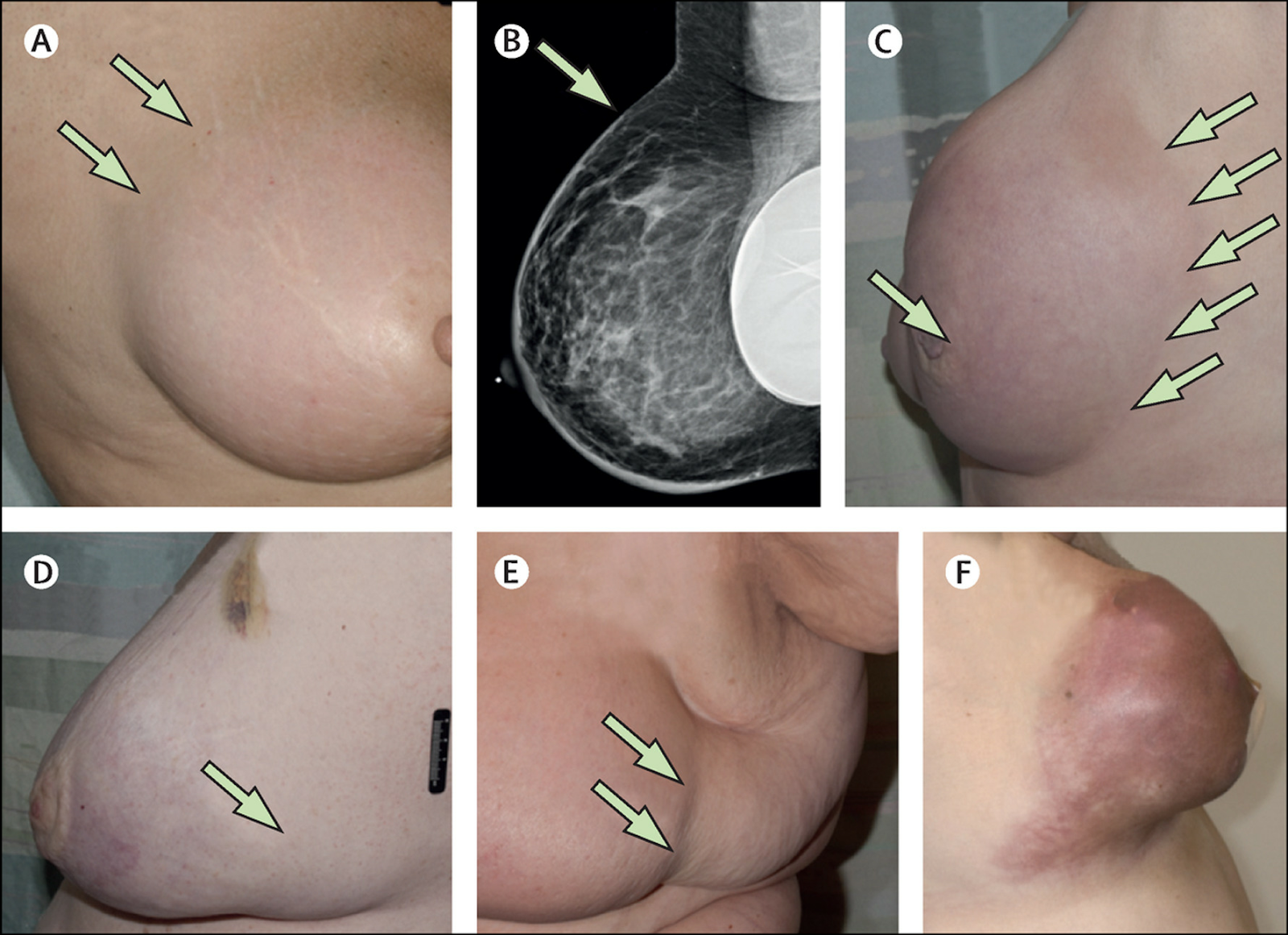Breast cancer is a malignant tumor that forms in the cells of the breast. It occurs when abnormal breast cells multiply uncontrollably and cluster together to create a lump or mass. Breast cancer can affect both women and, although less commonly, men.
It is the most prevalent cancer among women globally. Early detection through regular screenings, such as mammograms and self-exams, is vital for effective treatment.
Treatment options may include surgery, chemotherapy, radiation therapy, hormone therapy, or targeted therapy, depending on the type and stage of cancer. Breast cancer awareness and research have led to improved outcomes and survival rates.
Causes of Breast Cancer
1. Genetic Factors: Genetic mutations, such as those in the BRCA1 and BRCA2 genes, are recognized as major contributors to breast cancer risk. These mutations can be inherited and significantly increase an individual's likelihood of developing the disease.
2. Hormonal Influences: Hormones, particularly estrogen, play a pivotal role in breast cancer development. Factors that expose the breast tissue to elevated levels of estrogen, such as early onset of menstruation, late menopause, or hormone replacement therapy, can raise the risk of breast cancer.
3. Family History: A family history of breast cancer, particularly among first-degree relatives like mothers, sisters, or daughters, can significantly elevate an individual's risk. Certain genetic factors within families may contribute to this heightened risk.
4. Age: Breast cancer risk escalates with age. The majority of breast cancer cases are diagnosed in women over the age of 50, emphasizing the importance of regular mammograms as women get older.
5. Gender: While breast cancer is predominantly associated with women, it can also affect men, albeit at a much lower rate. Understanding this gender-specific risk is essential for early detection and prevention in both genders.
6. Radiation Exposure: Exposure to ionizing radiation, such as that encountered during radiation therapy for previous cancer treatments or diagnostic X-rays, can increase the likelihood of developing breast cancer later in life.
7. Obesity: Obesity is closely linked to an increased risk of postmenopausal breast cancer. Adipose tissue produces estrogen, and higher levels of this hormone can promote the development of certain types of breast cancer.
8. Alcohol Consumption: Even moderate alcohol consumption has been associated with an elevated risk of breast cancer. Limiting alcohol intake, or preferably abstaining from it, can help mitigate this risk.
9. Physical Inactivity: Leading a sedentary lifestyle is a contributing factor to breast cancer risk. Regular physical activity not only helps in maintaining a healthy weight but also reduces the risk of developing breast cancer.
10. Environmental Factors: The role of environmental factors, including exposure to environmental pollutants and endocrine-disrupting chemicals, in breast cancer development is an area of ongoing research. Reducing exposure to known carcinogens and staying informed about environmental risks is prudent.
11 Ways To Overcome Breast Cancer Risk
1. Genetic Testing and Counseling: If you have a family history of breast cancer or other risk factors, consider genetic testing and counseling to identify BRCA1 or BRCA2 mutations. This knowledge can guide prevention and screening strategies.
2. Breast Health Education: Educate yourself about breast health and risk factors. Understanding your own risk profile empowers you to make informed decisions about prevention and early detection.
3. Breast Self-Exams: Perform regular breast self-examinations to become familiar with your breast tissue. This familiarity can aid in the early detection of any unusual changes or lumps.
4. Regular Screening: Follow recommended breast cancer screening guidelines based on your age and risk factors. This typically includes mammograms and clinical breast exams conducted by healthcare professionals.
5. Hormone Replacement Therapy (HRT): If hormone replacement therapy is medically necessary, discuss its duration and dosage with your healthcare provider. Lowering the dose and minimizing the duration can help reduce the associated breast cancer risk.
6. Breastfeeding: If you have the opportunity, consider breastfeeding your child. Breastfeeding has been associated with a reduced risk of breast cancer and provides additional health benefits for both mother and child.
7. Healthy Diet Choices: Opt for a balanced diet rich in fruits, vegetables, whole grains, lean proteins, and healthy fats. Reducing the intake of saturated fats and processed foods can contribute to overall health and diminish breast cancer risk.
8. Limit Alcohol Intake: If you choose to consume alcohol, do so in moderation. Keeping alcohol consumption to one drink per day or less can help lower your risk of breast cancer.
9. Physical Activity: Engage in regular physical activity, aiming for at least 150 minutes of moderate-intensity exercise per week. Staying active can help maintain a healthy weight and reduce the risk of breast cancer.
10. Environmental Awareness: Be mindful of potential environmental exposures, including pollutants and endocrine-disrupting chemicals. Minimize contact with known carcinogens and stay informed about environmental risks in your vicinity.
11. Regular Healthcare Visits: Schedule routine check-ups with your healthcare provider and communicate openly about your breast cancer risk factors. They can provide guidance on risk reduction strategies tailored to your unique circumstances.
It's important to remember that while these strategies can help reduce the risk of breast cancer, they do not guarantee prevention. Regular breast cancer screening, self-examinations, and ongoing awareness of your risk factors are crucial elements of breast cancer prevention and early detection.
